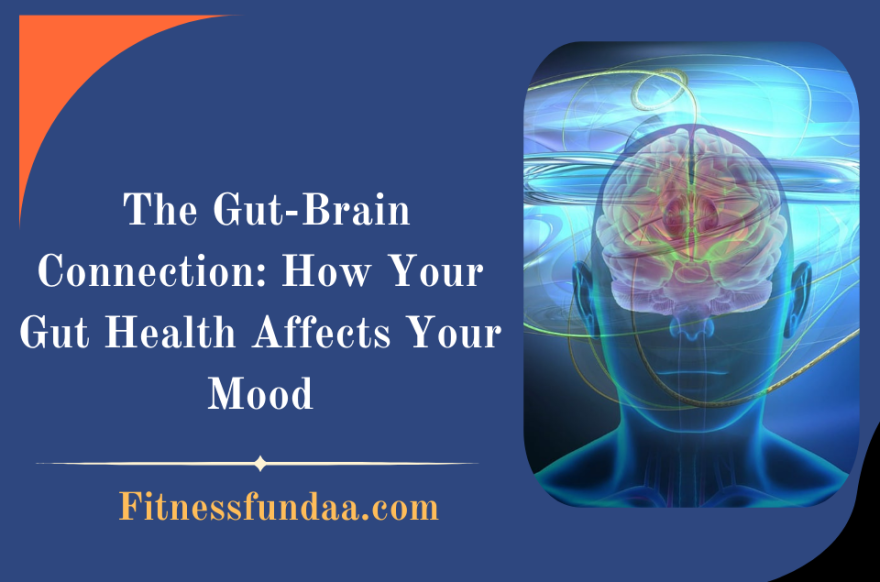The gut-brain connection delineates a mutual exchange system linking the gastrointestinal tract and the brain. This intricate interplay involves the enteric nervous system (ENS), neurotransmitters, hormones, the vagus nerve, and the gut microbiota. Signals traverse in both directions, impacting digestion, mood, and holistic well-being. Dysregulations in this interconnection can contribute to diverse health concerns, underscoring the significance of sustaining a robust gut for optimal physical and mental vitality. In this article we’ll explore how the Gut Health affects our mood.
The Enteric Nervous System (ENS):
Briefly put, the enteric nervous system, often dubbed the “second brain,” is a complex neural network within the digestive tract. It autonomously manages and regulates the gastrointestinal system, overseeing functions like digestion and absorption independently of the central nervous system. This unique capacity allows it to play a vital role in controlling digestive processes without direct reliance on signals from the brain and spinal cord..
Microbiota and Gut Health:
The role of the gut microbiota in maintaining a healthy gut-
In the intricate landscape of our digestive system, a bustling community of microorganisms known as the gut microbiota takes center stage. Comprising bacteria, viruses, and fungi, this diverse ensemble plays a pivotal role in orchestrating a symphony of functions that contribute to the well-being of our gut and, consequently, our overall health.
- Digestive Harmony: During the complex process of digestion, the gut microbiota acts as a key choreographer, aiding in the breakdown of intricate carbohydrates and fibers that challenge our digestive enzymes.
- Immunological Maestros: The microbiota showcases its prowess in orchestrating an immune system that performs in harmony. It regulates responses to invaders, preventing the discord of excessive inflammation and ensuring the resilience of our immune defenses.
- Guardians of the Intestinal Realm: These microbial guardians stand sentinel, actively engaging in a strategic battle against harmful invaders. They secure the perimeter along the intestinal lining, fortifying the defenses against potential threats.
- Vitamin Artisans and Metabolic Architects: Certain bacteria within this microbial community are akin to artisans, crafting essential vitamins and contributing to the architectural design of bioactive compounds that influence the metabolic rhythm within our bodies.
- Metabolic Symphony: In the grand symphony of metabolic processes, the microbiota holds a conductor’s baton, influencing the storage and utilization of energy. Disruptions in this symphony have been noted in the context of metabolic disorders.
- Neurotransmitter Poets: Certain members of the gut microbiota showcase their poetic prowess by contributing to the production of neurotransmitters, influencing the emotional cadence and rhythmic movements of the gut.
- Mucus Craftsmanship: Like skilled craftsmen, beneficial bacteria contribute to the artistry of mucus production along the gut lining. This protective layer acts as a shield, fortifying the structural resilience of the intestinal landscape. Maintaining the delicate balance and diversity of this microbial tapestry is paramount. Imbalances could lead to dissonance in the gastrointestinal composition, potentially impacting broader health. Nourishing this microbial community through diets rich in fiber, fermented delicacies, and prebiotics becomes an essential act in the ongoing saga of gut health.
Neurotransmitters and Mood Regulation:
Apart from helping in digestion, our gut also plays a significant role to produce mood- regulating neurotransmitters like serotonin and dopamine. Specialized cells present in the gut lining create serotonin, and certain dietary components, like tryptophan and tyrosine, serve as building blocks for serotonin and dopamine, respectively. The microbiota present in the gut also influences neurotransmitter levels, either by directly producing these molecules or affecting precursor availability.
Once synthesized, these neurotransmitters travel to the brain, impacting our mood. The intricate communication between the gut and brain, known as the gut-brain axis, highlights the importance of gut health in mental well-being. It emphasizes the need for a holistic approach to health that considers both digestive and emotional aspects.
Role of Inflammation: Imagine your gut as a bustling city and your brain as its sophisticated counterpart. Now, consider inflammation in your gut as a mischievous character causing chaos in this urban landscape. As this troublemaker releases inflammatory signals, it’s like sending unruly messengers on a journey, hitchhiking through your bloodstream, ultimately reaching the intricate fortress of your brain. Picture the brain’s protective barrier, the blood-brain barrier, as the wise guardian. But when inflammation persists, it’s as if the guardian nods off, allowing these troublemaking signals to infiltrate and wake up the brain’s own defense force, the microglia.
This awoken army then starts a commotion, releasing more inflammatory signals and sparking a riot known as neuroinflammation. This riot can disrupt the peaceful balance of mood-regulating chemicals in your brain, affecting how you feel. It’s like a riot in the city causing a change in the city’s vibe. Meanwhile, the nerve connecting this city and its brain, the vagus nerve, gets wind of the chaos, transmitting signals that influence not just the mood but also the overall performance of the brain. So, maintaining harmony in this cityscape isn’t just about avoiding stomach troubles – it’s about preserving the tranquility of the entire metropolis, brain included.
In a riveting exploration of the gut-brain connection, we uncover a symphony of biological marvels. The enteric nervous system, our “second brain,” choreographs digestive ballets independently, while the gut microbiota, a bustling community, orchestrates a metabolic sonnet. This microbial tapestry, nurtured by fiber-rich diets, crafts digestive harmony and stands sentinel against intruders. As neurotransmitter poets, certain microbes influence mood, unveiling a profound link between gut health and emotional well-being.
The article further takes an intriguing twist, exposing how an imbalanced gut may contribute to mental health disruptions. Picture the gut as a riotous city; inflammation acts as a mischievous character causing chaos, infiltrating the brain’s fortress. This uproar, transmitted by the vagus nerve, disrupts the tranquil brain-city vibe, emphasizing the interconnectedness of our inner metropolis. Beyond mere stomach care, nurturing this delicate balance emerges as a pivotal act in preserving the harmony of our entire urban landscape, where both digestive and emotional vitality flourish.
Faqs Answered
Why does the enteric nervous system earn the title of the “second brain,” and how does it lead the digestive charge independently?
Dubbed the “second brain,” the enteric nervous system (ENS) runs the digestion show solo. It manages tasks like digestion and absorption without relying on cues from the central nervous system, earning its nickname and accolades.
Can my immune system get a boost from my gut microbiota, and if so, how does this microbial defense force operate?
Absolutely! The microbiota superheroes regulate the immune system, acting as vigilant guardians along the intestinal lining. They stand as the frontline defense against invaders, ensuring your immune response remains robust.
How do my gut bacteria mastermind metabolic processes, and what happens when this metabolic orchestra hits a sour note?
Picture your gut bacteria as conductors orchestrating metabolic harmony. Disruptions in this symphony can lead to metabolic disorders, emphasizing the delicate balance they maintain in energy storage and utilization.
Can my gut bacteria influence my mood, and if so, are they the unseen poets of my emotional landscape?
Indeed, certain gut bacteria play the role of emotional poets, crafting neurotransmitters like serotonin and dopamine. They sway the emotional cadence and rhythms within your gut, silently influencing your mood.
How does inflammation in my gut pull off a caper and impact my brain, and what kind of consequences should I be aware of?
Imagine inflammation as a mischievous character causing chaos in your gut city. This troublemaker can compromise the brain’s fortress, leading to neuroinflammation. The consequences? A potential disruption in the mood-regulating chemicals within your brain.
Can an off-kilter gut lead a rebellion against my mental health, and what subtle signs might hint at this insurgency?
A rebellious gut might disrupt neurotransmitter production, potentially contributing to symptoms like anxiety and depression. Signs include mood changes, digestion hiccups, and a subtle revolt in your immune system.
How does the vagus nerve play mediator in the gut-brain tango, and what kind of signals does it transmit?
The vagus nerve takes on the role of a mediator, transmitting signals between your gut and brain. These signals aren’t just about mood; they influence the overall performance of your brain, adding layers to the intricate dance.

